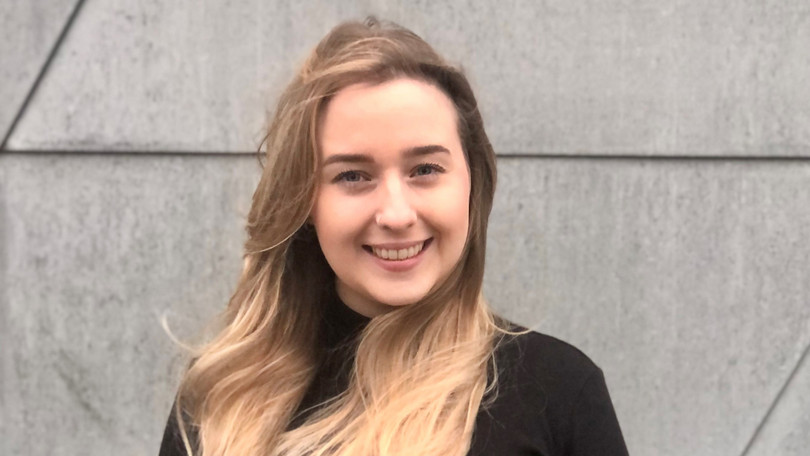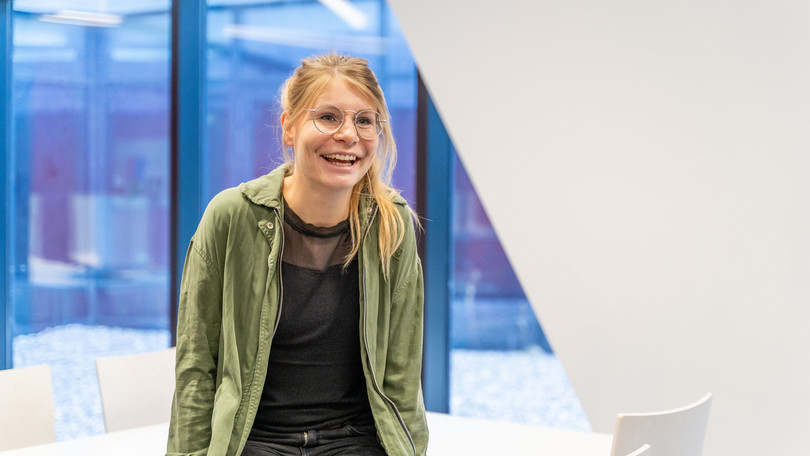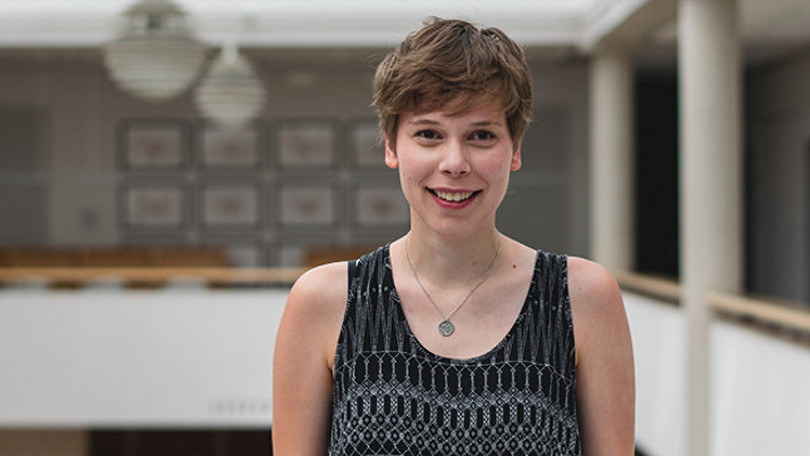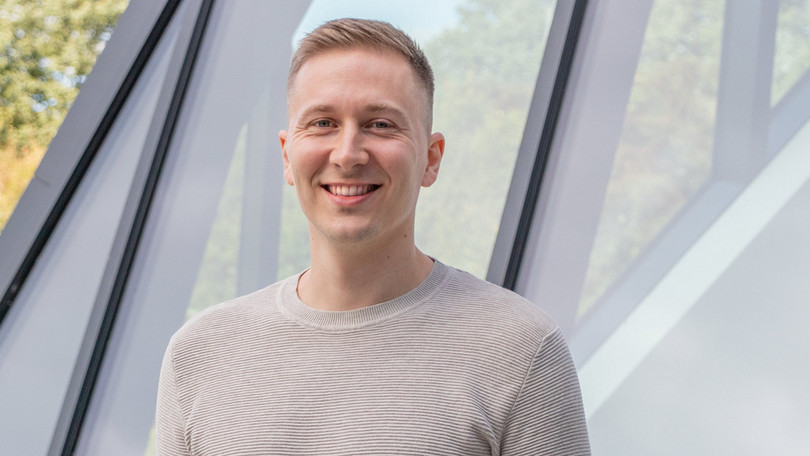Student and Alumni experiences - Public Economics, Law and Politics
On this page you find experiences of current and former students about the Masters Public Economics, Law and Politics at Leuphana Graduate School.
Melina's experiences
04.02.22 Internationality has a particularly high priority for Melina Feldkamp: after completing her Bachelor degree at the University of Limerick in Ireland, she opted for the internationally oriented Masters programme in Public Economics, Law and Politics at Leuphana. With a focus on politics and law, she is now heading towards her Masters dissertation.
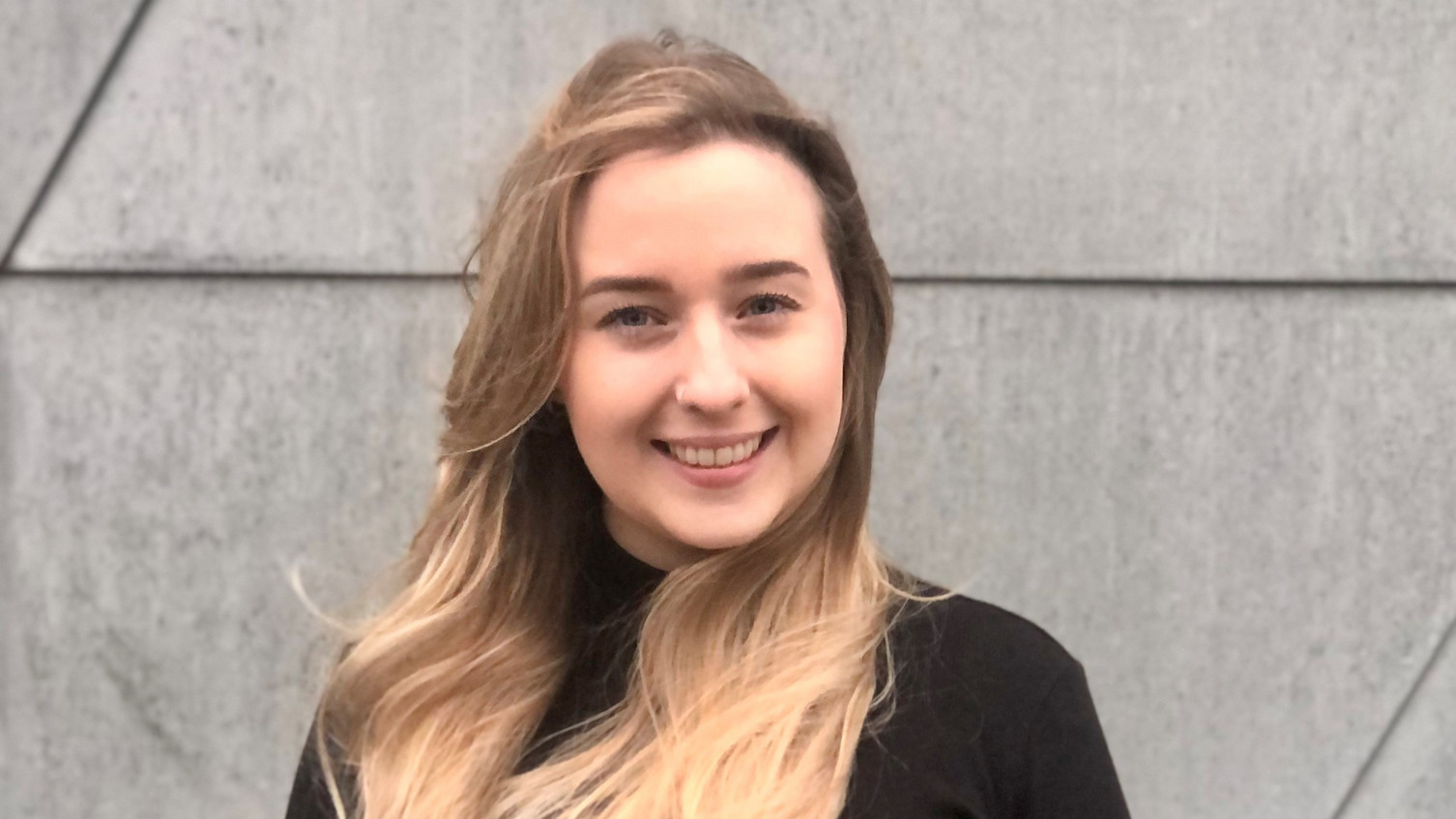 ©Privat
©Privat
Why did you decide to study Public Economics, Law and Politics (PELP) at Leuphana Graduate School?
I decided to study PELP because I appreciate the interdisciplinarity and internationality of the study programme. I wanted to continue to have the opportunity to study in English and also take my exams in English, as I was used to this from my Bachelor degree. Thematically, the Masters follows on well from my Bachelor and also offers me the opportunity to enter the discipline of law, which is new to me.
What did you study before you started your Masters at the Leuphana Graduate School?
I studied History, Politics, Sociology and Social Studies at the University of Limerick in Ireland. There I also had a major-minor combination, as is also common in the Leuphana Bachelor. I studied Politics as major and Sociology and Economics as minor.
In the Masters PELP, you have the opportunity to choose between different modules and to set your own focus. Which modules did you choose?
In the PELP programme, we can take a total of six elective modules in the fields of politics, economics and law; at least one module must be taken from each of the subjects. In addition, modules on development economics are also offered. I focused mainly on politics and law. In the first semester, I took a course on Political Mobilisation and Violence, in which we dealt with conflict processes and political mobilisation, among other things. I particularly remember the lively discussions in the course. Here, I found the internationality of our programme particularly valuable, as I was able to learn a lot from the experiences and perspectives of the other PELP students in the discussions.
Last semester, I took a module on public commercial law in Germany - which may sound relatively dry at first, because you deal with the economic system in Germany and the Basic Law, among other things. But it's not dry at all. For example, we also talked about whether and to what extent social media like Facebook can and should be regulated in the EU. This then combines theoretical discussions with very practical and relevant topics.
Leuphana sees itself as an inter- and transdisciplinary university. The orientation of your study programme is also interdisciplinary. How do you perceive this?
I think the interdisciplinarity is already apparent when you look at how different the backgrounds of the PELP students are - some have studied economics, others have already worked as lawyers, or - like me - come from political science. This gives the individual seminars and discussions a good background to explore different perspectives and ideas. We also have the so-called integration modules, i.e. State, Market and Civil Society and Governance, Democracy and Public Policy, which are designed to examine various topics from different perspectives. These modules are then also taught by two lecturers from different disciplines, which also helps to see a certain topic from several perspectives.
In addition, we also take three modules in the Complementary Studies, which allows us to think outside the box. For example, I took courses on environmental law in the EU or on Lüneburg's city marketing.
What is the relationship between the students and the lecturers like?
I would describe the relationship among PELP students as very friendly and helpful. We are also - with about 40 people per year - quite a small course of study. Everyone knows everyone else and we are well networked - within all years. We also try to maintain active contact with PELP alumni. Unfortunately, due to the Corona situation, I have completed most of my studies online so far and have therefore been able to get to know the teachers primarily virtually. However, my experience so far is that the lecturers make an effort to make the Zoom events interactive and stimulating. When questions arise, they are also approachable and respond very quickly to emails.
What keeps you busy besides your studies?
Besides my studies, I work as a student assistant in the Dean's Office of the Faculty of Business and Economics and am involved in the PELP student council. As a specialist group, we represent the interests of our fellow students in various committees at Leuphana and also provide support with specific problems and concerns. Apart from committee work, we also organise events for PELP students, for example, a kick-off for the new Masters students or alumni evenings. We are always happy to welcome new members!
How do you like Lüneburg as a place to live and how do you spend your free time here? Do you use the semester ticket? What should everyone have done in or around Lüneburg?
Lüneburg is a beautiful city! I especially like the fact that everything is easily accessible on foot or by bike. I like to go for walks in the Kurpark or around the Kreidebergsee. In summer, it's a good idea to jump off the Teufelsbrücke into the Ilmenau and let yourself drift a bit. Sunrises and sunsets are beautiful to watch on the Kalkberg. It's also worth going to the programme cinema SCALA or having a beer at the Irish Pub am Stint. I think the Salt Museum is particularly cool, and Leuphana students get free admission to it. Salt might sound a bit boring as a topic, but it's really exciting and you learn a lot about Lüneburg.
If you do feel like going to the big city, you can get to Hamburg for free in half an hour with the semester ticket and take advantage of the wide range of cultural activities there.
What plans do you have after your Masters degree?
Due to the interdisciplinary and flexible orientation of the degree programme, many things are also possible with regard to my career. I am very open to it and am currently thinking about a doctorate because I would like to go into social science research. But first I have to concentrate on the Masters dissertation.
To whom would you recommend the Masters Public Economics, Law and Politics at the Leuphana Graduate School?
I would recommend PELP to anyone who has a desire for an interdisciplinary and international degree programme and would like to explore new perspectives, ideas and experiences in exchange with students from all over the world.
Interviewer: Jonas Kernein
Svenja's experiences
21.11.19 After a dual degree in Public Administration and several years of professional work, Svenja Dahnke decided to enrol in the Masters programme in Public Economics, Law and Politics at Leuphana University. After graduation, she plans to return to public administration to contribute her expertise in law, politics and economics to a state or federal government.
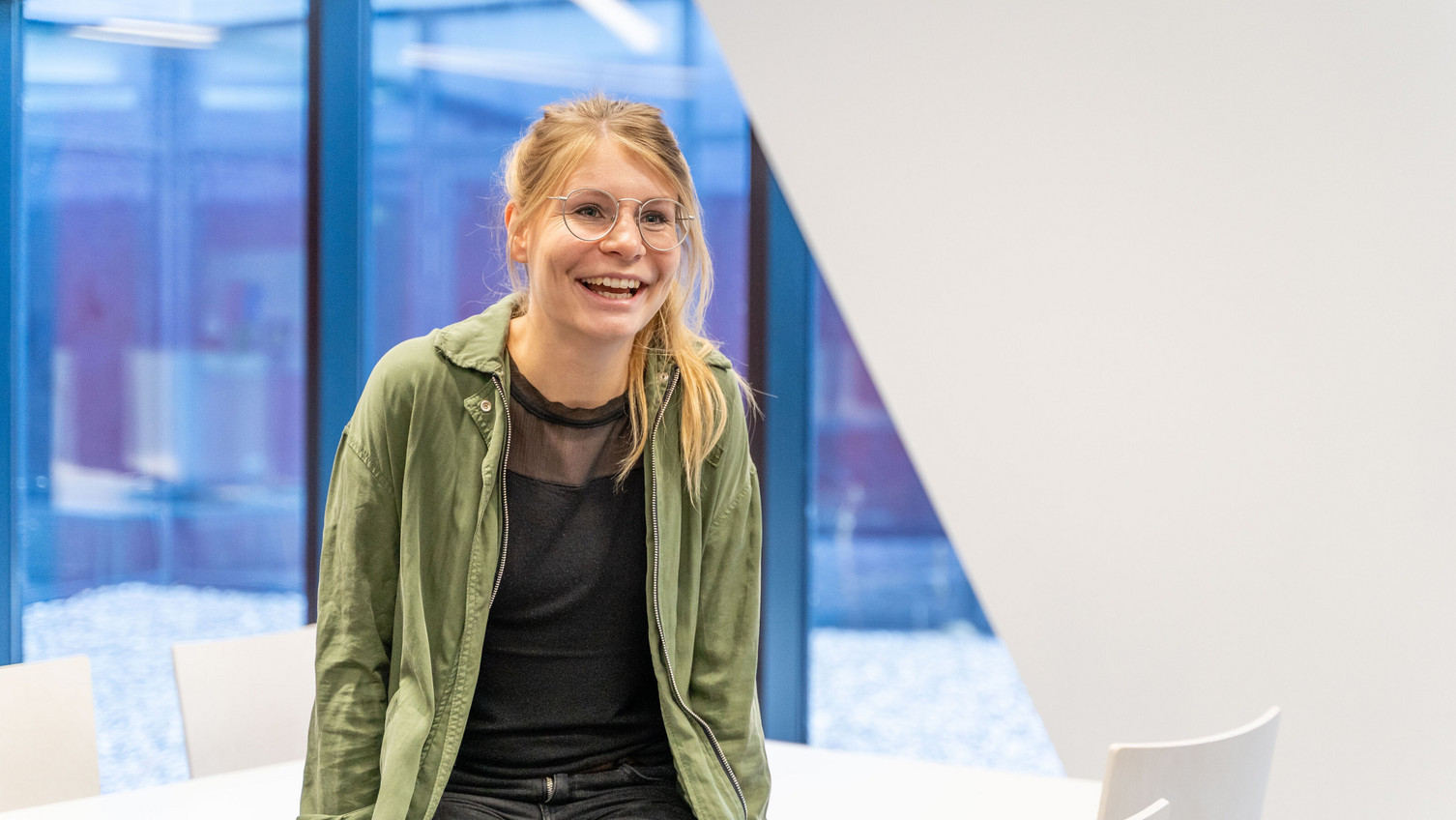 ©Leuphana/Patrizia Jäger
©Leuphana/Patrizia Jäger
What did you study before you applied for the Masters programme at Leuphana Graduate School?
Before that, I did my Bachelor of Law in Public Administration in a dual study programme. I studied for two years and worked for one year in the administration of the Hanseatic City of Wismar.
Why did you decide to do the Master in Public Economics, Law and Politics?
After my Bachelor degree, I worked for five years at the Ministry of Energy in Mecklenburg-Western Pomerania, so I went straight into the working world. However, I was already sure after my Bachelor degree that I would like to continue with a Masters degree in order to have the opportunity to pursue a career with personnel responsibility. Through my work at the Ministry of Energy, I realised that politics and economics are super interesting subject areas. If you work in public institutions, it is also important to understand the connections in these areas. The PELP Masters programme definitely helps with that.
You are now in your second semester. What expectations did you have of the Masters programme and have they been fulfilled so far?
Since I come from the field of law, I wanted to build up more knowledge in the fields of economics and politics and improve my technical English skills. Through the two new disciplines, I was able to develop new perspectives on politics and our society. In addition, I was able to improve and expand my English very well, if only because half of the modules are held in English. That's why my expectations have been completely fulfilled so far.
How did you cope with the new disciplines of the degree programme?
The introduction to economics was rather difficult. In the first semester, we had a methods seminar that dealt with statistics and empirical analyses. That was quite a lot of maths - which was quite a while ago for me - but I made the jump quite well and can now definitely deal with economics papers. In the field of political science, it was much easier to get started compared to economics.
Where are you going for your semester abroad and why did you decide to go?
In the summer semester, I'm going to Karlstad University in Sweden. It was clear to me that I definitely wanted to do a semester abroad because I didn't have the opportunity in my Bachelor degree. I believe that something like this is very important for personal development and also for foreign language competence. Leuphana offers a lot of opportunities for students who are planning a stay abroad. Especially for my field, I thought that a Scandinavian country would be a good fit because of the political and social structures, and Sweden has always interested me.
During your studies, you have the opportunity to choose between many different topics and set your own priorities. How did you decide?
Yes, that's an exciting question that I often asked myself at the beginning of my studies: what should I focus on? I came to the conclusion that I shouldn't set a focus and simply do the modules that I feel like doing and that I think will help me progress. I got recommendations for the courses from the higher semesters. Now I have a mixed bag of subjects. I have still chosen many courses in law, but also in politics and an economics in-depth course.
What I found super exciting this semester was the topic of theories of democracy. We looked at how our current concept of democracy came into being and how it has developed. You understand which theories, in combination with the historical context, have shaped the understanding of democracy today, and you deal intensively with the concept of democracy and the future of democracy. A lot of things became clearer for me with regard to the current state of our democracy and the international developments in this regard, and it helped a bit to understand the world better.
How do you perceive the Complementary Studies, which are designed to be more transdisciplinary?
In my complementary seminar in the first semester, I was still very close to my actual subject area and chose "Political Thought in the 20th Century". That was about the history of ideas and great thinkers in the 19th and 20th centuries. This semester I did something completely new for me and took part in an ideas competition. The competition was in cooperation with the city of Geestland and was called Enkelkindtauglich Leben (living suitable for gradnchildren). The aim was to design sustainable projects for the city. My project team designed, for example, the Landbox, a parcel post box for rural areas, which was super cool because it was about sustainability, which is a hot topic that is also communicated in a big way at Leuphana. It was fun to develop our own ideas and projects and pitch them to a concrete project partner, the mayor of the city of Geestland. In the end, there were even prizes and prize money.
Leuphana offers many opportunities for students to get involved outside their studies. Are you also active outside of your studies?
Leuphana really offers a lot of opportunities, and I'm an active participant in university sports myself. I attend two dance courses, do sports at Studio21 and the Groupfit sports courses. In addition, since this semester I have been active in the PELP subject group representation. We organise small events for our degree programme. This can be a summer party, a Christmas party or a pub crawl for the newcomers, for example. Representation in student committees is also part of it. For example, I sit on the study commission for our study programme and am a member of the Central Study Commission - this is a student advisory body for the Senate.
How do you like the city of Lüneburg as a place to live, and how do you spend your free time in Lüneburg?
Lüneburg is a very small sweet town that nevertheless offers many opportunities because the town is characterised by the many students. I like to be out and about in the city and often go to bars or pubs on Wednesdays. Lüneburg is really well-positioned in that respect. But you can also spend a lot of time in the countryside, for example along the Ilmenau River or at a nearby swimming lake. Actually, I spend most of my time with people from my degree programme and we can definitely make our free time in Lüneburg very pleasant.
What are your plans for the future?
My plans are relatively clear: I will go back to public administration - I think there is no more jerking around. However, I don't yet know exactly whether it will be a state government or the federal government where I want to work.
To whom would you recommend the Masters Public Economics, Law and Politics at Leuphana?
First of all, I would recommend it to those who have also studied something with law - like me, public administration. But I also find that the programme is well suited for pure political scientists and economists. The PELP Master's offers completely new perspectives, since very few people studied all three disciplines in their Bachelor, i.e. law, politics and economics. Because of the new perspectives you get through the new disciplines, you see a much better context with a view to society and democracy. This helps in strengthening one's own views and in working in public institutions, NGOs, foundations or the like. The only important thing is to be open to interdisciplinarity and to new (foreign) disciplines.
Interviewer: Ina Robert
Lina's experiences
20.08.18 On 23 June 2016, Lina Berg was speechless: almost 52 percent of the British electorate had voted for Brexit. In order to better understand the background to the vote, she went to London for an internship at the European Commission and returned with a topic for her Masters dissertation.
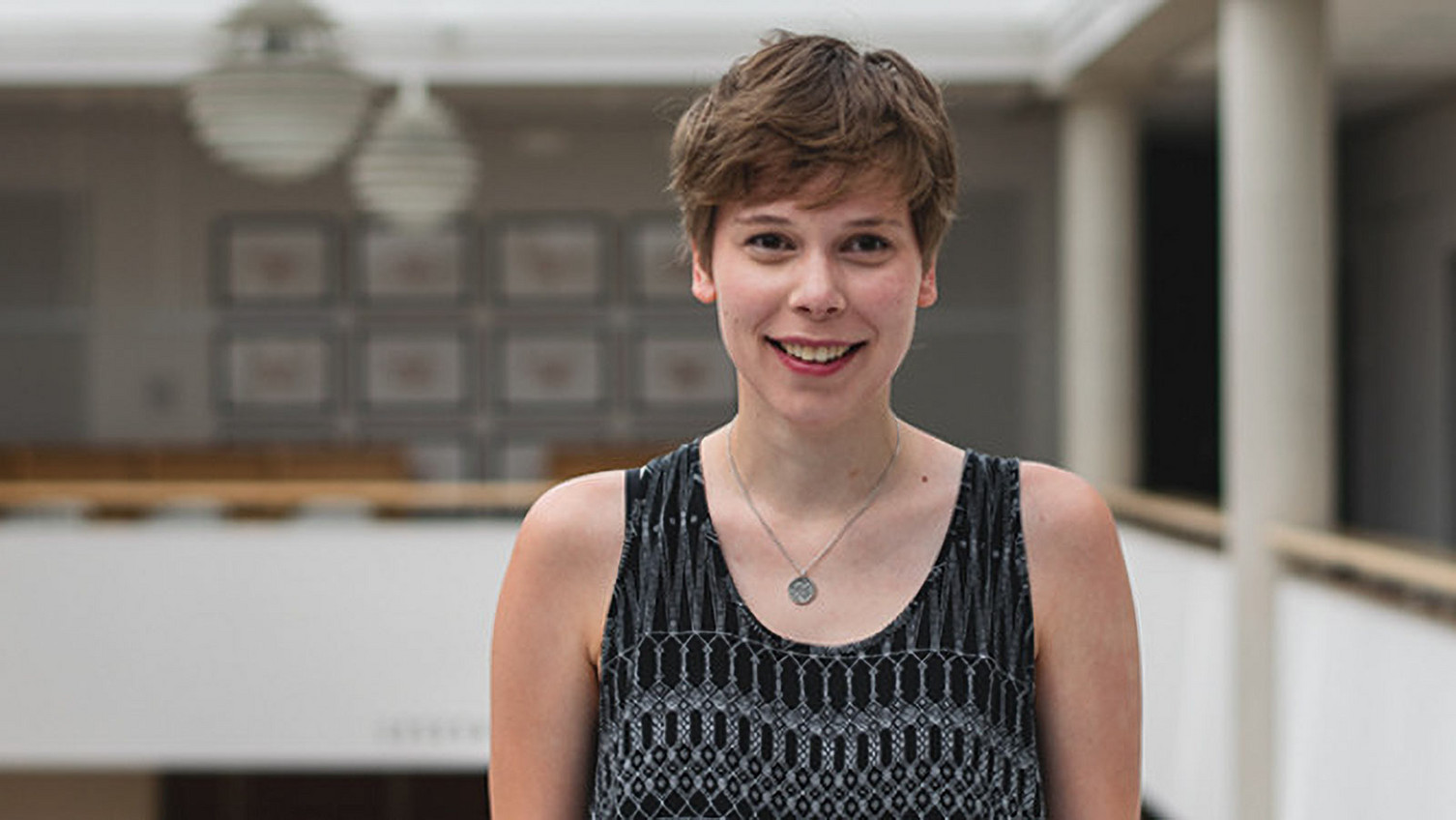 ©Leuphana
©Leuphana
"Completely crazy" - This is Lina Berg's first thought after the Brexit decision. "My generation is growing up with Europe. For me, it is incomprehensible why a state wants to leave the Union," says the 27-year-old. She completed her Bachelor degree in European Studies at the University of Magdeburg and is now studying Public Economics, Law and Politics at the Graduate School. Lina Berg is enthusiastic about Europe: "It is a peace project."
But many Brexit supporters in the UK would not see it as such. "For them, the EU is an economic alliance. They believe Britain would be better off economically without the EU regulations and levies," reports Lina Berg. She spent three months researching opinions and moods for the European Commission in London. There are these representations in every EU country. "The information we gather in the political department is mirrored to Brussels." A demanding task - especially for a trainee: "I was thrown into ice-cold water," recalls Lina Berg. Not only was detailed knowledge of the Parliament expected, on one of her first days as an intern she was sent to a debate with Brexiteers, i.e. opponents of the EU. "There I hid my documents from the European Commission under my notepad," Lina Berg recalls. But in the end, she was surprised by the often very respectful debate culture: "They are not all populists. Many see themselves more connected to the Commonwealth than to the EU because of Britain's history."
800 euros for a room in a shared flat
Applicants wait about a year for one of the coveted internships. It was the same for Lina Berg. "I am glad that everything worked out so well. After all, I organised the internship myself." In addition to the place at the European Commission, she also had to find accommodation. Even just financially, only a shared flat was an option. "It was a very expensive internship. The room in the shared flat alone cost 700 pounds a month. That's the equivalent of almost 800 euros." But since Lina Berg has been working as a student assistant at the Graduate School for some time, she was able to put something aside.
The new experiences were priceless for her anyway. "It was a very special feeling when I went to the Houses of Parliament for the first time," Lina Berg recalls. The offices of the European Commission are located in Europe House, a Victorian city villa in the middle of Westminster. Every morning, Lina Berg heard Big Ben ringing and walked past the many bobbies protecting the government quarter. She attended committee meetings, listened to the ideas of academic think tanks on the future of Britain outside the EU, or walked to universities to capture sentiment. "Basically, you mostly meet EU supporters in London." And they draw attention to the problematic consequences of Brexit. "I first realised there that really everything will be affected by the exit: from shampoo imports to the Northern Irish border." This issue particularly moves Lina Berg: "The Good Friday Agreement didn't solve the Northern Ireland conflict, it only shut it down." With the decision, Ireland, Great Britain and the Northern Irish parties ended the violent phase in 1998. If Britain leaves the EU, the Northern Ireland border will become the EU's external border. "How will that affect the peace there?" asks Lina Berg.
"London has grabbed me"
The Good Friday Agreement allows Northern Irish to hold Irish citizenship in addition to British citizenship. This was supposed to resolve people's identity conflict. Those who have dual citizenship will be citizens of a non-EU country after Brexit, but they will also be EU citizens. In her Masters dissertation, Lina Berg wants to look at the relationship of Northern Irish people to citizenship. Has it changed due to the upcoming Brexit? Especially since the majority of Northern Irish people voted against Brexit.
But Lina Berg has not only brought an exam topic from England, she has also become a fan of Great Britain. "London has grabbed me. It's a great city! And I like the humour of the British. For example, the Northern Irish border has its own Twitter account where she talks about her Brexit worries from a first-person perspective." When Lina Berg has her Masters degree in the bag, she would very much like to work in an EU project - preferably in London. That's why she, like many of her colleagues at the European Commission, is still hoping for an exit from Brexit.
Author: Morgaine Struve
Hoang's experiences
05.07.2022 Hoang Anh Nguyen is an alumnus of the programme Public Economics, Law and Politics and successfully entered the field of lobbying after graduation. As Public Policy Lead, he advocates for a climate-neutral construction industry.
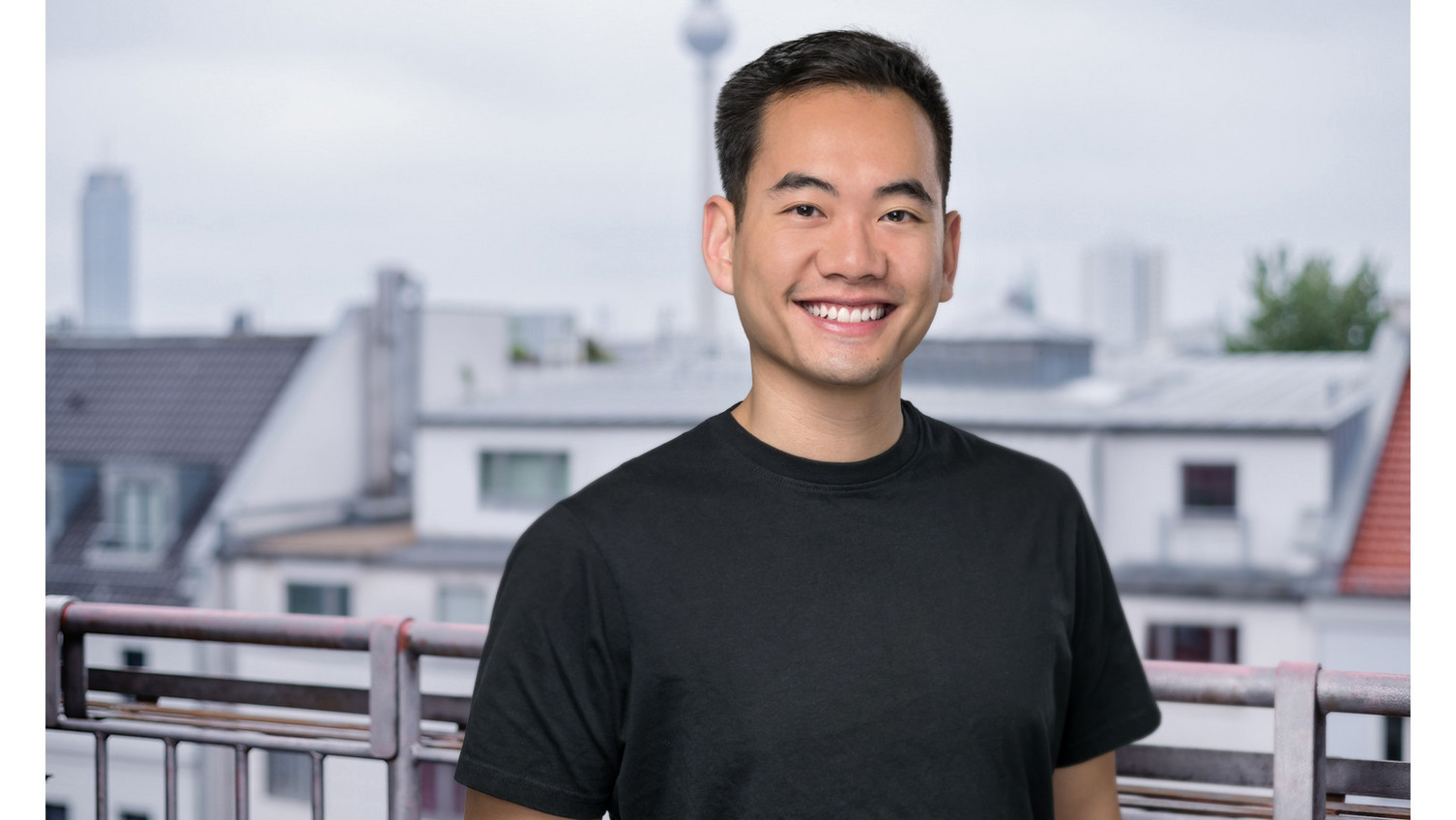 ©Privat/Michel Buchmann
©Privat/Michel Buchmann
What was your study programme at Leuphana?
I studied the Masters programme in Public Economics, Law and Politics (PELP) at Leuphana from 2016 to 2019.
Did you study at Leuphana beyond your Masters degree? If yes, what?
I already studied the Major in Political Science and Minor in Law in my Bachelor and there I learned to appreciate and love student life in Lüneburg and especially studying at Leuphana.
What did your career path look like up to this point?
Even during my Bachelor, I was enthusiastic about public affairs, political consulting, but also parliamentary business. But to be honest, I didn't really know where I wanted to go. With Political Science, the world is open to you. That can be good because you are flexible, but it can also be difficult because you have no orientation.
To get this orientation, I did some internships in corporate lobbying, in the German Bundestag and in the federal representation of the state of Lower Saxony. I gained important experience and learning in all of these stations and ultimately realised that I enjoyed lobbying on the business side.
No sooner said than done: Immediately after completing my MA, I applied for numerous jobs and finally found a position with the umbrella organisation of the construction and real estate industry. There I was responsible for the topics of digitalisation and innovation.
I have to admit that I was a little hesitant at first, as I perceived the construction and real estate industry as quite conservative and traditional. This impression was eventually confirmed, but nevertheless I found that I enjoyed the work - writing statements, position papers and committee meetings.
After a while, however, I realised that I was missing out on the topics of climate protection and sustainability. After all, the building sector is responsible for 38% of CO2 emissions. Without decarbonisation, we will definitely not create a climate-neutral economy. This circumstance and the motivation to make a more active contribution against the climate crisis led me to pack my bags after two years and start working for a greentech startup. The vision was clear: to decarbonise cement and concrete, which are responsible for 8% of global CO2, with technology.
I have been Public Policy Lead there for a few months now and am super happy with my role. Here I am responsible for lobbying, corporate communication and cooperation with the construction industry - with the goal of making low-CO2 concretes the standard in construction.
When you look back on your time at Leuphana today, then...
I notice how much my studies have shaped me, my values, attitudes and interests. As a young 18-year-old first-year student from the Lower Saxony province, I hadn't seen much of the world and was correspondingly nervous about embarking on the adventure of studying. The initial flurry dissipated super quickly, however, when I realised that I met many like-minded people with similar interests and hobbies at Leuphana and that great friendships developed as a result.
Apart from the great interdisciplinary studies, I have fond memories of student life with all the parties, the great lunatic Festival and the endless evenings on the Mensa meadow.
Were you involved in any voluntary work during your time at Leuphana? If yes, how?
I had the privilege of receiving a scholarship from the Hans Böckler Foundation, which is close to the trade unions, and was therefore very active in the scholarship holders’ group Lüneburg. I was also active for a long time in PolicyLab e.V., a political education initiative, and organised workshops and events.
How did your studies prepare you for your current work?
Professionally, I felt well prepared after my studies, although of course I still had no idea what to expect. However, it helped a lot that I already came into contact with legal texts and scientific work during my Masters and that I was able to use this knowledge wonderfully when writing statements and position papers.
What I am infinitely grateful for, however, is that I was sensitised to the topics of climate protection and sustainability in the course of my studies. Without the modules in the Complementary Studies, this perspective would never have opened up for me, and without the intensive study in the main studies, I would never have recognised its importance.
During my studies, I learned to critically examine the existing situation, my environment and the actions of the state and the economy. This thinking and acquired knowledge help me in my activities and motivate me to make a significant contribution against global warming every day.
To whom would you recommend studying at Leuphana?
Absolutely recommended for everyone! Excellent curriculum with a beautiful campus, great student life and very good supervision!
Interviewer: Jonas Kernein
Björn's experiences
05.10.21 The alumnus managed a successful career start after his studies. He studied Public Economics, Law and Politics at Leuphana and gives tips on how to start a career with good study planning.
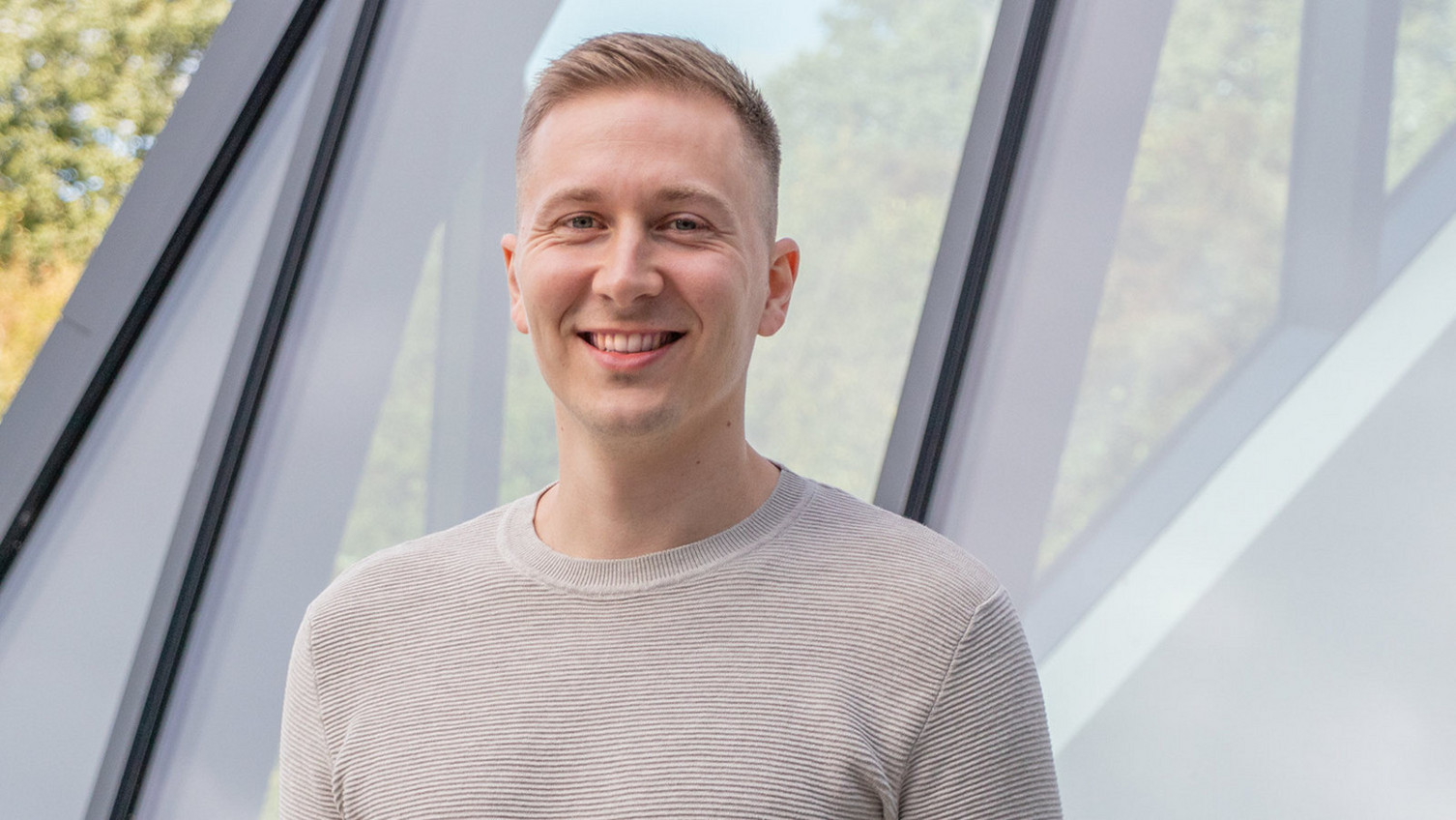 ©Leuphana/Marie Meyer
©Leuphana/Marie Meyer
Björn Schubert deliberately chose his field of study according to his personal interests: "I studied political science at Leuphana for my bachelor's degree and public economics, law and politics for my master's degree. There, economics, politics and law were put into an overall interdisciplinary context. An exciting thing!" says the alumnus. Today, Björn Schubert works for a software company in Lüneburg. As a project manager, he is currently implementing a customer relationship management system there. If you're now wondering how studies and career fit together in terms of content in this resume, it's best to take a look at Björn Schubert's study philosophy: "Open your eyes to the outside! Look to the right and to the left!"
During his bachelor's degree, Björn Schubert completed a semester abroad at Karlstad University in Sweden: "It was made possible by Leuphana's cooperation with Erasmus." The experience he gained during his stay abroad benefited him when he started his career. After graduation, the alumnus worked for an international management consultancy: "During the semester abroad, I learned how to work with people from different cultures. That was very helpful in my first job and the assignments abroad."
Björn Schubert already worked as a student assistant at Leuphana during his studies. "I helped organize and coordinate events such as the Dies academicus or the graduate celebration. That was incredibly educational." Today, as a project manager, he supervises Leuphana work-study students himself: "There are so many opportunities to gain practical experience while still studying. The Leuphana job exchange is a helpful tool for getting working student jobs and making contacts," says the alumnus.
He advises all students to gain experience beyond their own discipline. The complementary studies program, for example, offers a change of perspective: "I chose courses with a high practical relevance, such as a seminar on negotiation techniques in English. This knowledge has also helped me in my job," he reports.
Born in Bremen, he chose Leuphana because he likes to think outside the box. "I was convinced by the study model with the joint study entry during the start week, as well as the major and minor system paired with the complementary studies. The study program has just advanced me methodically: I was able to improve my understanding of complex relationships and learned to look at problems from different perspectives and to work in a self-organized way."
During his master's studies, he particularly appreciated the interdisciplinary exchange with other international students who had completed their bachelor's degrees in related disciplines: "An enriching time."
Author: Dr. Marietta Hülsmann
Podcasts
Contact and Counselling
First contact point
The Information Office (Infoportal) is your contact point for
- general information on the application procedure
- initial questions about the study programmes offered at Leuphana
- making an appointment with the Graduate School Student Counselling Service.
Information Office
Building 8, Ground Level
Fon +49.4131.677-2277
studierendenservice@leuphana.de
Campus opening hours
Mon - Thu 9.00 am - 4:00 pm
Fr 9.00 am - 12 noon
Student Counselling
To make an appointment with our Student Counselling Service, please use our booking tool on our website.

